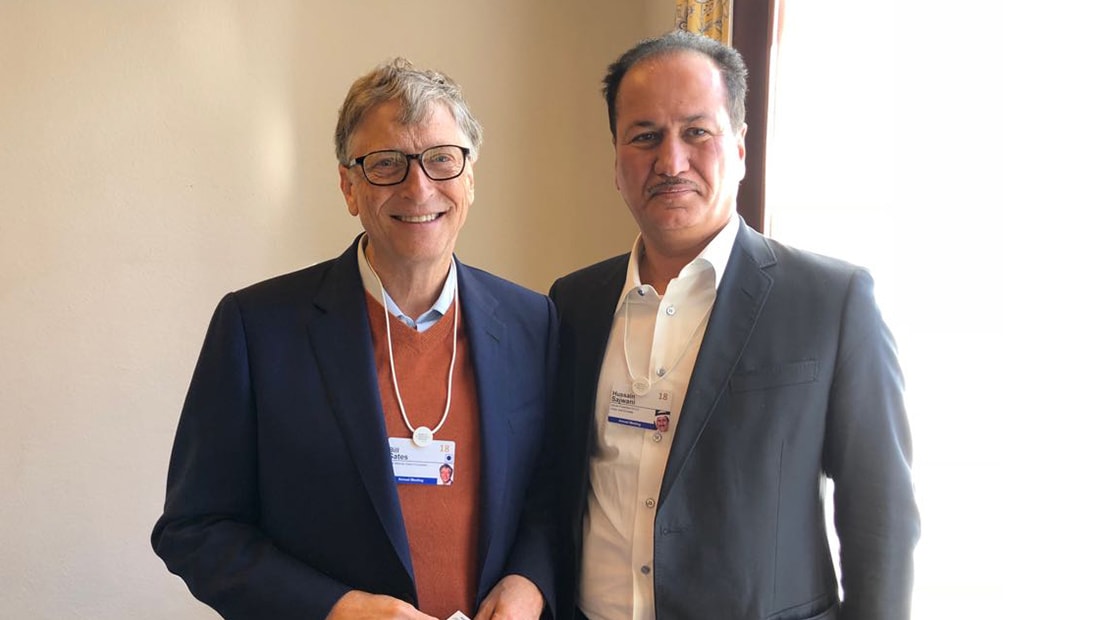
I attend the World Economic Forum (WEF) each year to gain an understanding of the issues that are driving the global conversation, and to listen to the debates and discussions that are helping shape global perspectives.
The privilege of spending several days with the world’s greatest minds from almost every industry helps me to shape my own outlook for the year ahead, and identify the shifts in global sentiment across a multitude of subjects and issues.
‘Creating a Shared Future in a Fractured World’ was the theme for this year, adding a somewhat sombre undertone to my trip to Davos. Shifting national interests, increasing adoption of protectionist policies, and a growing disparity between economic prosperity and social cohesion around the world are some of the global events creating fractures within societies and across humanity as a whole.
The premise that our world has managed to fracture itself politically, economically and socially, left me wondering what contributions can be made by WEF participants to heal such ruptures.
This year’s forum committed to address many of these challenges and bring the world together, to define a roadmap for the year ahead, and to deliver a blueprint for global healing based on engagement and collaboration.
This made WEF 2018 particularly important and historic, in several ways. Aside from the record snowfall in Davos which hasn’t been seen in 20 years, there was a tremendous focus on innovation, and how technology can be deployed to improve our world, across all walks of life and in almost every sector. From Artificial Intelligence (AI) to blockchain, the need to better understand the technological advancements that are at our disposal to improve economic and social conditions globally, while tackling some of humanity’s biggest challenges like poverty, job creation, education and healthcare, was a recurring theme throughout the forum.
WEF 2018 was a historic event for me too, as I had the opportunity to speak for the first time at a session titled ‘Digital Skills Imperative’ which was held on the first day of the forum. I discussed how technology can help change the Arab workforce by creating opportunities for young Arabs to gain the skills needed for future jobs.
My session was designed to encourage dialogue and find collaborative solutions to address the urgent need to scale-up skills development in the digital space. This has become a worldwide imperative in order to cope with rapid global digitalisation and mass automation. Discussions centered around the need to gain a better understanding of the role of emerging technologies, ways to create incentives for collective action and investment to stimulate skills development, as well as to discuss the shifting views on lifelong learning.
I shared my own experience and perspective on our region’s approach to this imperative, and on setting up the Hussain Sajwani – DAMAC Foundation, a foundation I established specifically for the One Million Arab Coders Initiative which will provide software development skills to one million people across the Middle East. I shared with participants the ambitious goals of this initiative in transforming the Arab world.
As envisioned by His Highness Sheikh Mohammed bin Rashid Al Maktoum, One Million Arab Coders aligns with the session’s global consensus; in that any region’s success to develop advanced skills among its workforce is underpinned by public-private sector collaboration.
Through the conversations I had during the session, I was struck by the positive response from participants who applauded the initiative, hailing it as a ground-breaking effort that should be implemented everywhere. I was humbled by this, knowing that the Arab world had set a precedent for one of the key challenge areas being addressed at this year’s forum.
On the second day at WEF 2018, I had an exceptional encounter with global technology visionary, Bill Gates, who co-founded Microsoft and since 2000, has dedicated his life and financial resources to philanthropic efforts. Through the Bill & Melinda Gates Foundation, Mr. Gates has touched the lives of millions of people on earth. During our private lunch, I had the pleasure of discussing One Million Coders with him, and learn from his perspectives on how best to build on this initiative over the long-term.
By the end of the third day and after attending numerous sessions where the world’s greatest minds shared their thoughts and insights on how we can improve the world, I left the World Economic Forum with an optimistic view that the global community is working cohesively and that perhaps these so-called fractures are only hairline cracks that have already started to mend thanks to these three days.
In my final hours at WEF, where I attended another historical event – a reception honouring President Donald Trump, the first US President to visit Davos in almost 20 years – I came away with a renewed sense of purpose, with a mind full of insights and knowledge, and a reassured confidence that we as Arabs are on the right track for a better and more inclusive future.